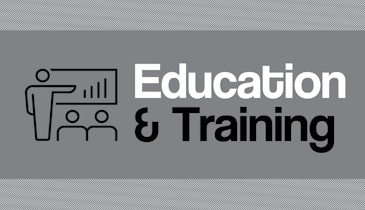If you’re considering applying for grant funding for your wastewater system, you’ve probably also considered hiring a consultant or writer to help you through the process. Grants these days are complex and highly competitive, so putting together the best application you can is essential to success. For many communities, that means seeking outside help. On the other hand, hiring an outsider can come with added complications and cost. So what should you consider when deciding whether or not to hire grant-writing help?
Cost
If you’re already short on funds (and if you’re applying for a grant, you probably are), paying a contractor may not sound appealing. Still, it’s worth taking the time to shop around, ask for recommendations, and determine what the going rate is in your area. You may also find engineering firms or contractors willing to help with the application free of charge. However, be aware of the legal limitations on the relationship between applicants and consultants. For example, EPA regulations require “[grant] recipients to hire contractors through open competition to the maximum extent practicable.” That means you can’t promise to give the job to a firm just because they helped you with the proposal paperwork.
The complexity of the application
Some applications are easier than others. Length, complexity and requirements may vary, so your choice to hire additional help may hinge on the nature of the application itself. An inexperienced team may be able to handle simpler paperwork, while you may need to rely on experts for trickier, more specialized applications. This is a common practice: One review of small Florida communities found that writers were most often hired for more lengthy or complicated applications, such as those required for HUD’s Community Development Block Grants.
Your on-site resources
If you do handle the application internally, who will be in charge of managing, planning and writing it? Does your current staff have the time and resources to carry this out, or will working on the application disable other important departmental functions? Also think about the skill set of your team. If you have a natural project manager or solid writer in your midst, you may be better prepared than you think. Don’t be afraid to ask around and see if anyone in your organization is familiar with the grant process: many nonprofits, schools, religious organizations and community groups apply for grants, and they may have participated in this process outside of their work life.
Insider knowledge
Experts can’t guarantee that you’ll be awarded financial assistance, but they tend to have a better success rate than first-timers. Many experienced grant writers can also help you navigate the application process. Their expertise can make the application process easier and less stressful, they understand the need to adhere to timelines, and can ensure your application follows writing best practices. Thoughtfully and appropriately representing your organization and conveying the goals of the project clearly and succinctly is invaluable and can make all the difference in winning a grant. But buyer beware, a consultant may not have the institutional knowledge grant writing requires, thereby producing an application that seems formulaic.
The bottom line
Hiring a grant writer or consultant may be worth the expense to many communities but, ultimately, winning a grant depends on the impact the project will make and the credibility of your organization. Rallying the support of your community, stakeholders and organizational members will bode well during the grant application process. And demonstrating fiscal responsibility, that you have a clear and realistic plan, and a history of organizational integrity will gain the support of reviewers and grant-making bodies alike.
For a detailed guide on applying for grants, read Envirosight’s white paper Guide to Grant Applications for Wastewater Operators.
Visit the Envirosight Storefront






